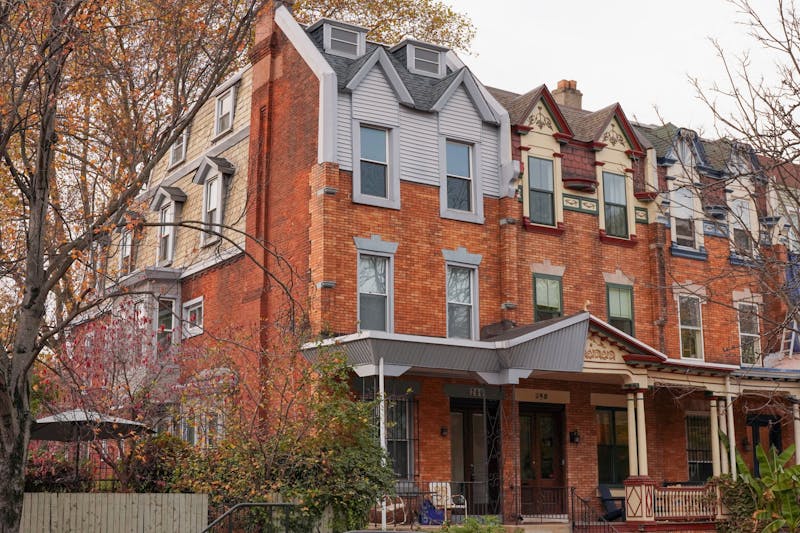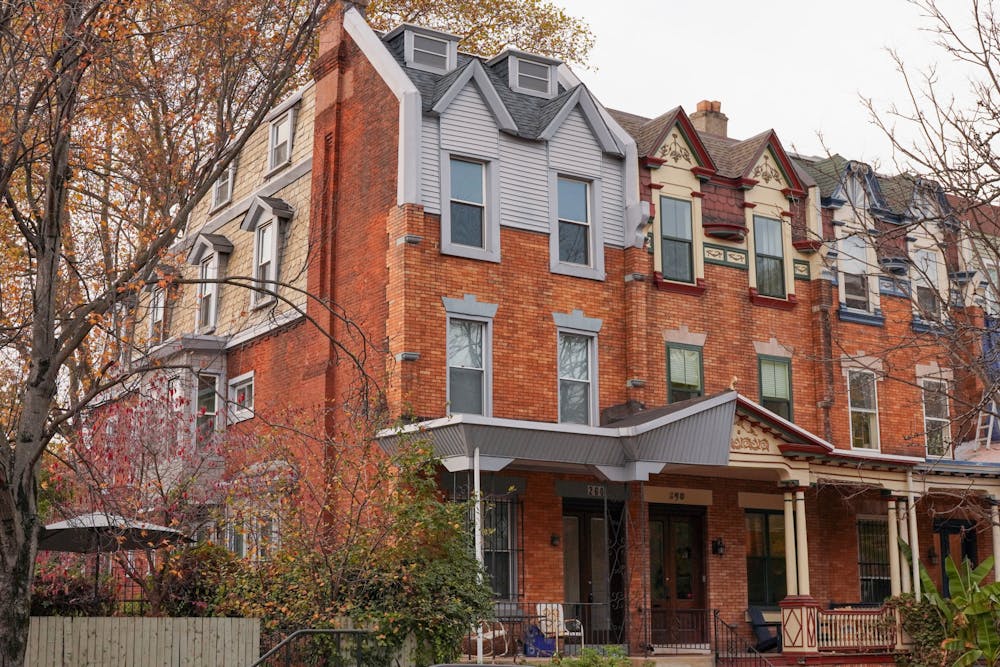The PHLHousing+ pilot program selected 301 households to receive rental assistance through monthly cash payments distributed via a dedicated program debit card.
Credit: Jan Mejía-Toro
The PHLHousing+ pilot program — a rental assistance project spearheaded by the Philadelphia Housing Development Corporation and the City of Philadelphia in collaboration with Penn — announced their findings last week.
Initially established in 2022 to help address housing insecurity in Philadelphia, the program provided rental assistance to participants in the form of monthly cash payments via a program-specific debit card. A total of 301 households were randomly selected to participate in PHLHousing+ from the Philadelphia Housing Authority waitlists.
The pilot revealed a potential new method of housing assistance in addition to evaluating the effectiveness of existing housing assistance, like housing vouchers. “Philadelphia really needs multiple housing strategies because no single approach will work for everyone,” PHA President and CEO Kelvin Jeremiah said in a press release documenting the program’s initial outcomes.
Newly released research — authored by researchers from the Housing Initiative at Penn, the Risk and Resilience Lab, and PHDC — reported that the program “has had significant positive impacts on the housing security of participating families” which are “comparable to those reported by households that receive rental assistance” through the Housing Choice Voucher program.
The brief detailed cash rental subsidies “significantly reduced the chances of a household experiencing homelessness,” “improved the reported housing quality of households,” and decreased forced moves by 63-75% “relative to households that received no assistance” after one year, among other benefits.
Though direct cash fares have promising positive outcomes, the research brief still affirms that both cash payments and vouchers are necessary to maintain robust, effective housing assistance.
“Both forms of rental assistance are crucial for ensuring low-income families have safe, stable, and affordable housing,” the brief reported.
Penn researchers are continuing to help analyze the program’s results, evaluating both direct cash payments’ effectiveness in comparison with other housing assistance as well as their impacts on individual outcomes.
Professor in the Department of City and Regional Planning and Faculty Director of the Housing Initiative at Penn Vincent Reina said that the findings tell a clear story.
“There are clearly positive benefits of this cash transfer program,” Reina told The Daily Pennsylvanian. “Folks are clearly seeing higher levels of housing stability and improvements in housing quality.”
He added that the findings highlight “reality that there’s a real opportunity — one for us to think creatively about how we apply rental assistance, but also to acknowledge that we need this broader tool set out there … to help households.”
Sign up for our newsletter
Get our newsletter, DP Daybreak, delivered to your inbox every weekday morning.
In addition to promoting housing security, Department Chair and Psychology professor Sara Jaffee explained how the cash subsidies can potentially impact several other individual opportunities.
“We’re also very interested in a related set of outcomes,” Jaffee told the DP. “Does it enable our households to move to higher opportunity neighborhoods? We’re going to pivot in that direction, to start looking at the kinds of educational opportunities, employment opportunities, the kinds of health opportunities that exist in neighborhoods.”
Jaffee added in the initial PHDA press release that the “lessons learned from this program will offer invaluable insight about the impact of housing assistance on a broad set of adult and child outcomes and about the difference flexible assistance makes in people’s ability to access and maintain housing.”
The Daily Pennsylvanian is an independent, student-run newspaper. Please consider making a donation to support the coverage that shapes the University. Your generosity ensures a future of strong journalism at Penn.

